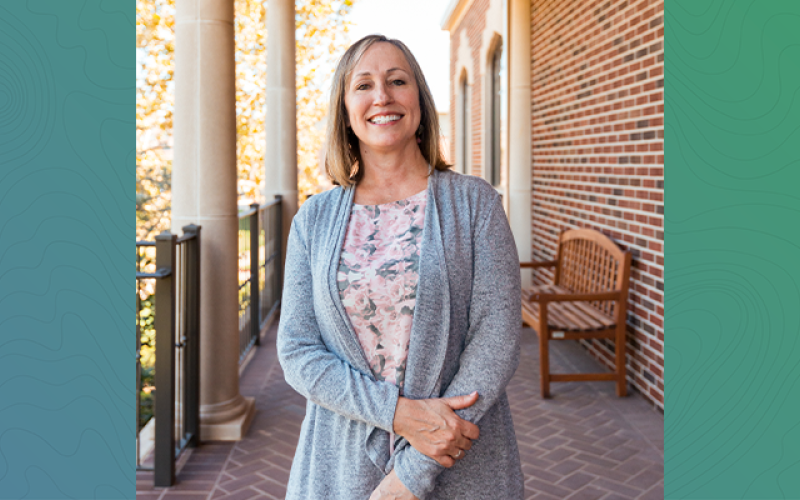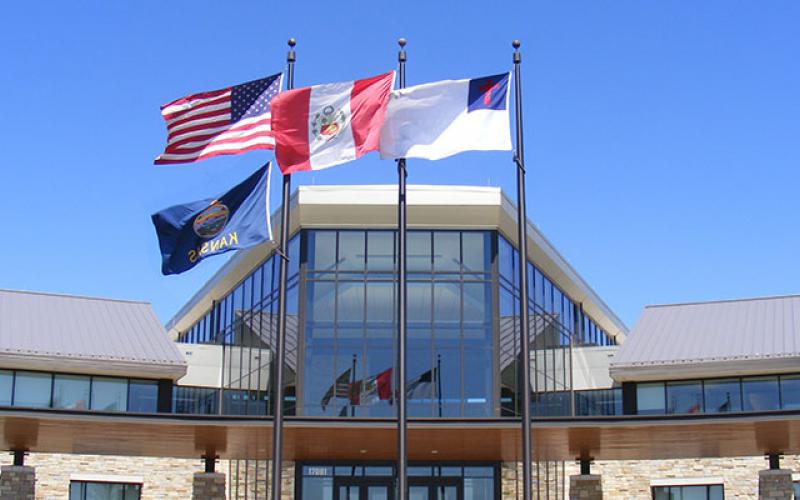
Building confidence: Mentoring ministry empowers youth to overcome their circumstances
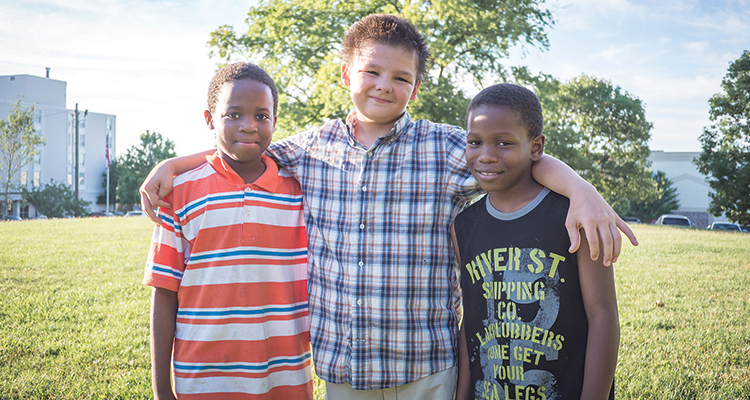
Three boys clamber onto a no-longer-new school bus and are welcomed by cheerful greetings and high fives. Wearing ripped jeans, faded tees, and worn-out sneakers — the uniform of childhood — the boys begin chatting away to their peers and leaders about homework assignments, basketball games, and siblings who bring stray cats home.
Out the bus window, a sea of identical brick buildings, children running around, and used furniture scattered on lawns begins to fade from sight.
It’s hard to imagine that just over two miles away from Nashville, Tennessee’s world-famous Broadway — where rhinestones, cowboy boots, and bright lights take center stage — this neighborhood is struggling with drug abuse, gang activity, and a surging rate of gun violence.
Stephen*, age 11, Malik, age 10, and Jordan, age 10, are all from this neighborhood, known as Napier Community. All three live with a fear of bullets flying into their home, or family members not returning from a simple walk to the corner store.
Children living in this community are not only under the daily pressures that come with school and growing up in general, but they’re also under the pressures that come with living around violence.
“This boy was in a gang and he was messing with my brother,” Jordan says, “so he got a pistol and shot our apartment.”
Sitting together, the three boys discuss the most recent hardships of their neighborhood as easily as some kids discuss sports and video games.
“My sister isn’t allowed out of the house,” Stephen says, matter-of-factly. Why? Chances are that she will become a victim of gender-based violence. The other boys nod in agreement.
“It’s nasty stuff,” Jordan says. “That’s why my mom always keeps my sister in the house. She lets us go outside, but she only lets my sister out if she’s with us, so if someone tries to get my sister we can defend her.”
Ducking at any loud noise that sounds like gunfire, moving from home to home due to poverty, and sisters not being allowed out of the house due to fear of attacks are all part of daily life for these boys.
J.C. Napier Homes is a governmental housing project that sits in a district with Nashville’s highest violent crime rate and one of the highest rates of poverty in the city. The vast majority of homes here are headed by single mothers, and the average annual income is about $9,500, compared with the city’s median household income of $53,400.
“It’s not the worst place to live,” Stephen says, thoughtfully considering his neighborhood, “It’s kind of good and kind of bad. It’s bad because most of the time people are doing negative and violent stuff, and the good side is that people have homes and they have food to eat and a place to live.”
It’s here that CrossBRIDGE, a Nazarene Compassionate Ministry Center connected with Trevecca Community Church, has created KidPOWER and YouthPOWER — comprehensive after-school programs to address the chronic effects of generational poverty.
Whole life involvement
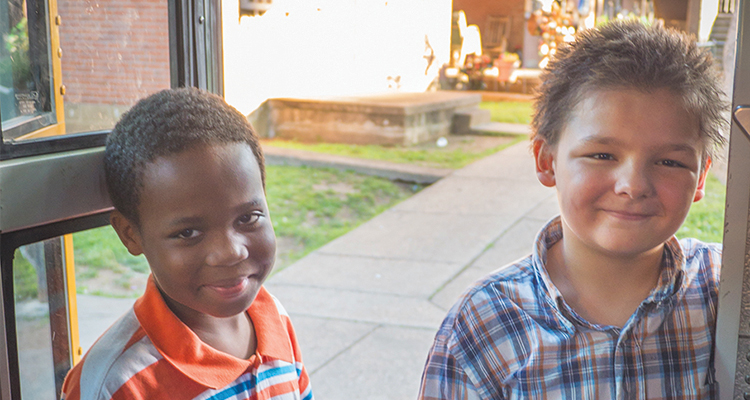
After a short ride, the boys climb off the bus and rush toward a squat building shining in the afternoon sun. Once inside, all offer helping hands as leaders begin serving snacks.
KidPOWER, which is for students in grades 1 through 4, meets every day after school, and YouthPOWER, which is for students in grades 5 through 8, meets Wednesday and Sunday afternoons. Both programs seek to give children and youth a place where they can focus on their personal growth. This growth takes place within a safe space and in relationship with caring adult mentors, but it begins by considering students’ current context.
Anna Byrne, a mentor at YouthPOWER, explains that when students become emotional or out of control, she might suggest they calm down by drawing a picture that represents their week.
“I’d get pictures back of guns, pictures of shootings, pictures of them laying in their bed crying at night,” she says.
YouthPOWER is adapting to needs. The program focused on younger children started in 2010 with only second graders and has grown a grade level each year since; in 2013 when the children finshed fourth grade, YouthPOWER was developed to make room for older children.
“We used to be in KidPOWER,” Jordan explains proudly, “But now we’re in YouthPOWER. It’s like the older version of KidPOWER.”
Hayley Shaddix, director of KidPOWER, explains that the acronym POWER stands for purity, others, wellness, excellence in academics, and reconciliation. The programs focus on healthy lifestyle choices, schoolwork support, service, and healthy relationships. YouthPOWER takes these concepts to a deeper level. A student who may have learned about peaceful conflict resolution in KidPOWER is then equipped to apply it to everyday life through YouthPOWER.
“Most of these kids have multiple adverse childhood affects [or trauma],” Byrne says.
That means the first step isn’t necessarily helping with math or reading homework. In order to accomplish academic success, students first need to learn tools such as coping with emotions or persevering through failure or disappointment.
Shaddix shares one example: When Jordan first came to the program, he had very limited skills in dealing with his emotions. He would often shut down and shut others out until the suppressed feelings would erupt into anger. Now, Jordan is using the tools he has learned to handle his emotions differently by using words to express his anger or frustration.
KidPOWER and YouthPOWER were both created by Tina Mitchell, executive director of CrossBRIDGE. The programs both seek to help children within the community realize their full potential and make the most of their futures. They teach children and youth that generational poverty and current circumstances do not have to determine the trajectory of their futures or affect God’s plan for their lives.
“We’re really trying to be involved in the whole life of the child,” Shaddix explains.
These programs work to teach the children how to make healthy decisions in all areas of life, from what they choose to eat and caring for others to working hard in school and choosing reconciliation over violence. The program is working to help students see different lifestyle options than the ones they have grown up around and guide them to make decisions that will help them as they mature.
In a community where 87 percent of students don’t meet grade-level reading expectations, 77 percent of students are failing to meet grade-level expectations in math, and 23 percent of students miss more than 18 school days each year, YouthPOWER is working hard to help students from the neighborhood change these statistics. Program participants take part in one-on-one academic tutoring as well as engage in group academic goals and individual academic goals.
“YouthPOWER helped me with reading,” Malik says, sitting up straighter in his beanbag chair. “I graduated my reading level, and now I’m on a higher grade with my reading level.”
Last year the boys worked hard to complete different levels of math assignments and had an ice cream party to celebrate their achievements at the end of the year. Each assignment was worth different toppings, and if students finished all of the assignments, they got to pile their ice cream high with bananas, hot fudge, whipped cream, and more.
“We did multiplication worksheets, and at the end of the year we got ice cream,” says Stephen happily reminiscing about the celebration with his friends. “I got a banana on mine.”
One on one
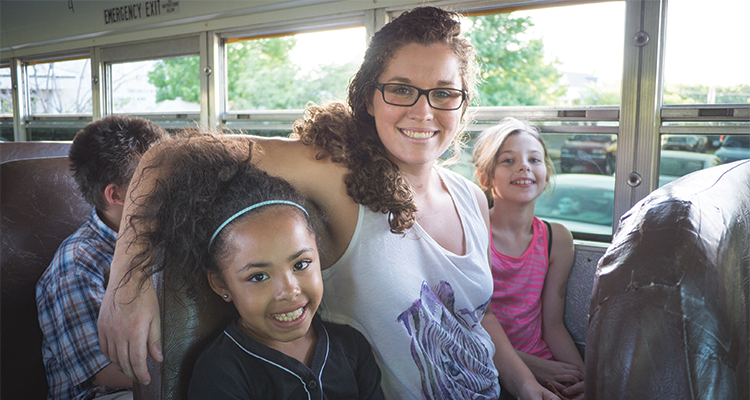
Through each activity, students are also taught the importance of dependable, healthy relationships. One way the leaders encourage this is by assigning each child a mentor. These mentors volunteer their time to help the children with their homework and different academic goals. They also take this relationship past an academic realm and get to know the children personally, talking with them about their lives, helping them with service projects, and encouraging them to develop strong character traits.
In everything, mentors and leaders at YouthPOWER aim to show youth the love of God through their own actions and words. They believe that being a part of the community and a part of students’ lives is an opportunity to reveal God’s light even in difficult circumstances.
“For us it’s about building that foundation of relationships and showing the love of Christ,” says Zac Shaddix, director of YouthPOWER.
For youth like Stephen, YouthPOWER has been a door into a church community as well. He not only attends the after-school program, but he also attends the youth events at Trevecca Community Church.
“Sometimes we learn about Bible stories,” Stephen says with a wide smile. “My favorite is the first one; that’s when God created the earth.”
Through their time together, students, mentors, and leaders alike have the opportunity to create relationships based on trust, dependability, and faith. Trae Smith, who started out as a mentor and is now a full-time staff member, explains how students come into the program withdrawn and reserved, and how it takes time and hard work to gain their trust. Smith spent an entire semester telling one youth every day at bus drop-off that he was loved, but the child never responded. Then the last day of the semester, the student came running back before the bus pulled away to tell Smith, “I love you, too.”
Smith emphasizes that mentoring is not just a one-way relationship.
“The thing that gets me the most is seeing the transformation. I’ve been here four years, and I’ve watched kids change and grow — and I’ve watched all the change in my life,” he says, tears glistening in his eyes, “It would be a struggle to see my life without being here.”
When asked what he considers the best part of mentoring, Smith answers, “Seeing kids and mentors come out of their shells.” As proof, he pulls out his cell phone to show a photo of a boy with his arms wrapped around a mentor’s neck.
“The students sometimes have a hard time expressing emotions, but that student leapt into his mentor’s arms at our end-of-the-year bash,” he says.
The mentoring programs is working to help youth who are at risk change their futures by showing them new possibilities and equipping them with the tools they need to thrive. In many ways, mentors serve as mirrors that reveal what already exists. As mentors walk alongside them, youth begin to see the things they need to work on, but they also begin to see the gifts and abilities they already possess.
“Students recognize they are each beautifully unique and become more confident in who they are,” Hayley Shaddix says. “Stephen is an awesome example of this. He’s come to recognize he has an ability to make others laugh and bring so much joy to those around him.”
Change happens

The bus comes to a stop outside the J.C. Napier Homes, and the three boys step out. The sun is just setting as children are chasing half-inflated basketballs, groups of adults walk together in quiet conversation, and women hang out their laundry. As they rush off, Stephen, Malik, and Jordan turn to wave, their smiling faces full of hope.
They know the fears and struggles of life in their neighborhood, but they also know that their dreams can be reached, life can be changed, and hard work can pay off.
“We love our kids, and we believe in them, and I think whenever the kids start to see that they are loved and are worthy of love and are valued ... a change really happens,” Hayley Shaddix says. “Our biggest transformation is when kids start to believe in themselves.”
*Children’s names have all been changed for their protection.
--Republished with permission from the Winter 2016 edition of NCM Magazine


